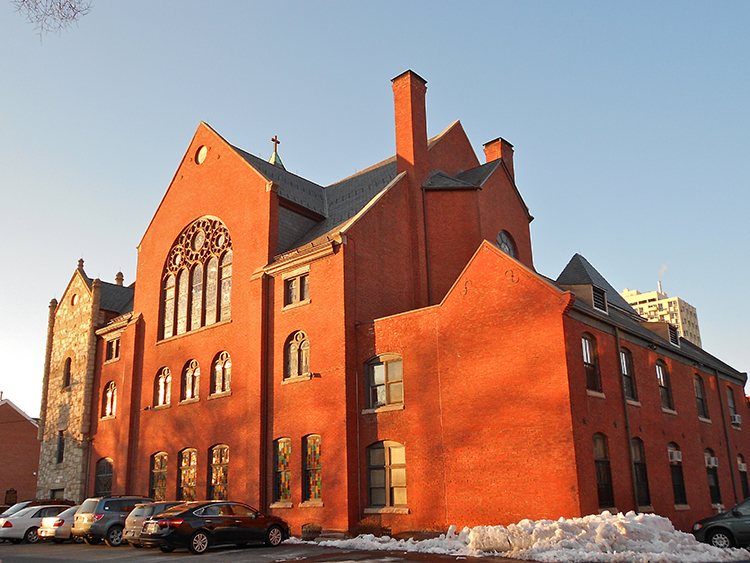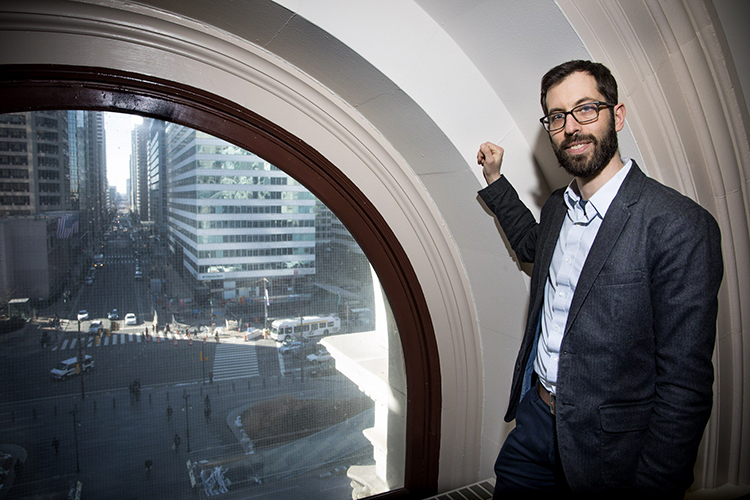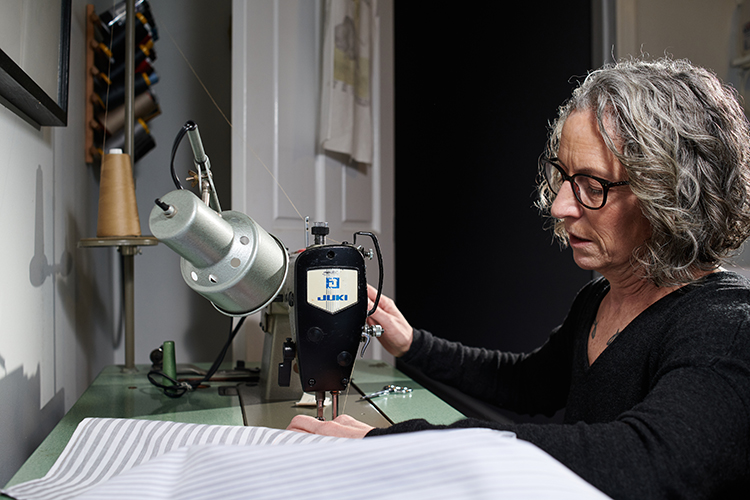by Randy LoBasso
This February Philadelphia City Council members held a hearing on whether or not to bring dockless e-scooter sharing into our transportation fold. With two e-scooters sitting in the chambers, citizens, company representatives and city employees filed in to give their arguments and testimonies for and against the new take on an old form of transportation.
The e standing for electric, e-scooters are plug-in, freestanding vehicles with two or three wheels. Similar to Indego bike share, the scooters unlock after a user provides payment. Unlike the bike-sharing service, however, the vehicles don’t need to be returned to designated locations, as riders can geo-locate available scooters’ locations using a mobile app.
In the past few years, cities like Baltimore; Portland, Oregon; and Washington, D.C., have adopted these sharing systems. Scooter advocates at the meeting said the vehicles are better for the environment than cars (and more fun, too), but skeptics voiced three big concerns:
Are e-scooters safe to ride?
Can we trust riders not to leave scooters on sidewalks, hindering pedestrians, or in the street, blocking traffic?
Could the poorly maintained streets of Philadelphia even be navigated by scooter?
Let’s examine these issues more closely.
Safety
Everyone’s goal should be to create a safe city that has zero traffic deaths.
One investigation found that 1,500 e-scooter injuries occurred around the country between late 2017 and early 2019. Because hospitals aren’t really tracking these injuries, yet, the investigation, conducted by Consumer Reports, got this number by contacting 110 hospitals across 47 cities where e-scooter sharing exists—so this estimate is likely low. This report also didn’t look at the number of rides taken or calculate the rate at which people are being injured.
But Portland, Oregon, did.
Among the 700,369 scooter trips in Portland between July 23 to November 20, 176 resulted in scooter-related emergency and urgent care visits. That’s 2.5 injuries per 10,000 trips.
With these numbers, the local county health department found there was “no evidence of injury rates that would discourage a further scooter pilot in the city of Portland.”
A Hindrance For Pedestrians and Drivers
That riders may leave scooters to block sidewalks is a legitimate concern. It’s an inconvenience at best, and at worst, it’s a civil rights violation that hinders the disabled community.
The Bicycle Coalition of Greater Philadelphia, where I work, helped the city release a construction-building-permit map earlier this year that shows the locations of legal construction permits that block sidewalks, streets and bike lanes. Illegal construction and illegal right-of-way blockages have also been reported through the program.
The bike lanes are similarly disrespected. In 2018 the Philadelphia Parking Authority broke its record for issuing tickets to vehicles parked in bike lanes. Ticketing for this offense has gone up 173 percent since 2014.
As reported by the Philadelphia Inquirer earlier this year, many companies have built the cost of tickets into their budgets. The worst streets for blocked bike lanes are the most-biked streets in the city—Spruce, Pine, 13th and 22nd streets.
On weekends, people attending religious services (and those who don’t) use the bike lane for parking, along Spruce and Pine streets, with impunity. The city and state look the other way because of an apparent “handshake agreement” between the religious institutions and the government.
Next, take a stroll through any neighborhood in South Philadelphia—or a peak at the @NotAParkingSpot Twitter feed. Not only will you see dozens of motor vehicles parked in the center turning lane on Broad Street (illegally, and unticketed), but you will find active vehicles parked in crosswalks, on sidewalks, and in bike lanes, often unticketed.
The point is that whatever adverse effects the scooter might cause, they pale in comparison to violations that already routinely occur. A beefed-up right-of-way division could make sure all rules are enforced.
Street Conditions
An opinion piece in the Philadelphia Inquirer published in August of 2018 argued against scooters because of current street conditions.
“[T]here is no requirement for the city or [dockless scooter] company to upgrade infrastructure. Good luck dodging those monster craters on a flimsy electric scooter,” freelance journalist Ptah Gabrie wrote.
However, in many cities scooter companies are required to use part of their profits to invest in better city infrastructure, like bike lanes. The Bicycle Coalition is working with other organizations to make sure those same requirements would apply in Philly when and if e-scooter companies are invited into the city.
What’s more, “street defeatism,” the notion that our streets will always be in a state of disrepair, isn’t a good reason to ban new transportation options. It disregards the power of advocacy and activism.
In December 2014, the Bicycle Coalition put out a report showing the city had a 1,000-mile backlog on paving streets. Philadelphia invests just a fraction of what other cities do in its streets department, the report found, and only had a single crew to do the work.
The report said the city would need to hire a new paving crew and invest enough in the streets department to bring its approximately 50 miles of repaving per year to 130 miles per year, just to cut into the backlog.
In his most recent budget address, Mayor Jim Kenney proposed to put an additional $200 million toward street resurfacing in the next five years. He noted that by the end of that time, Philadelphia would be repaving…that’s right… 130 miles of streets, per year.
If street defeatism had credence, you wouldn’t see bike lanes, bumped-out sidewalks, protected infrastructure, handicap-access ramps, bike sharing, streetside elevators into train stations and a whole host of other amenities created to allow for better access across transportation modes.
While e-scooters would certainly add some complications to the streets, any transportation alternative that discourages car usage should be welcomed.








